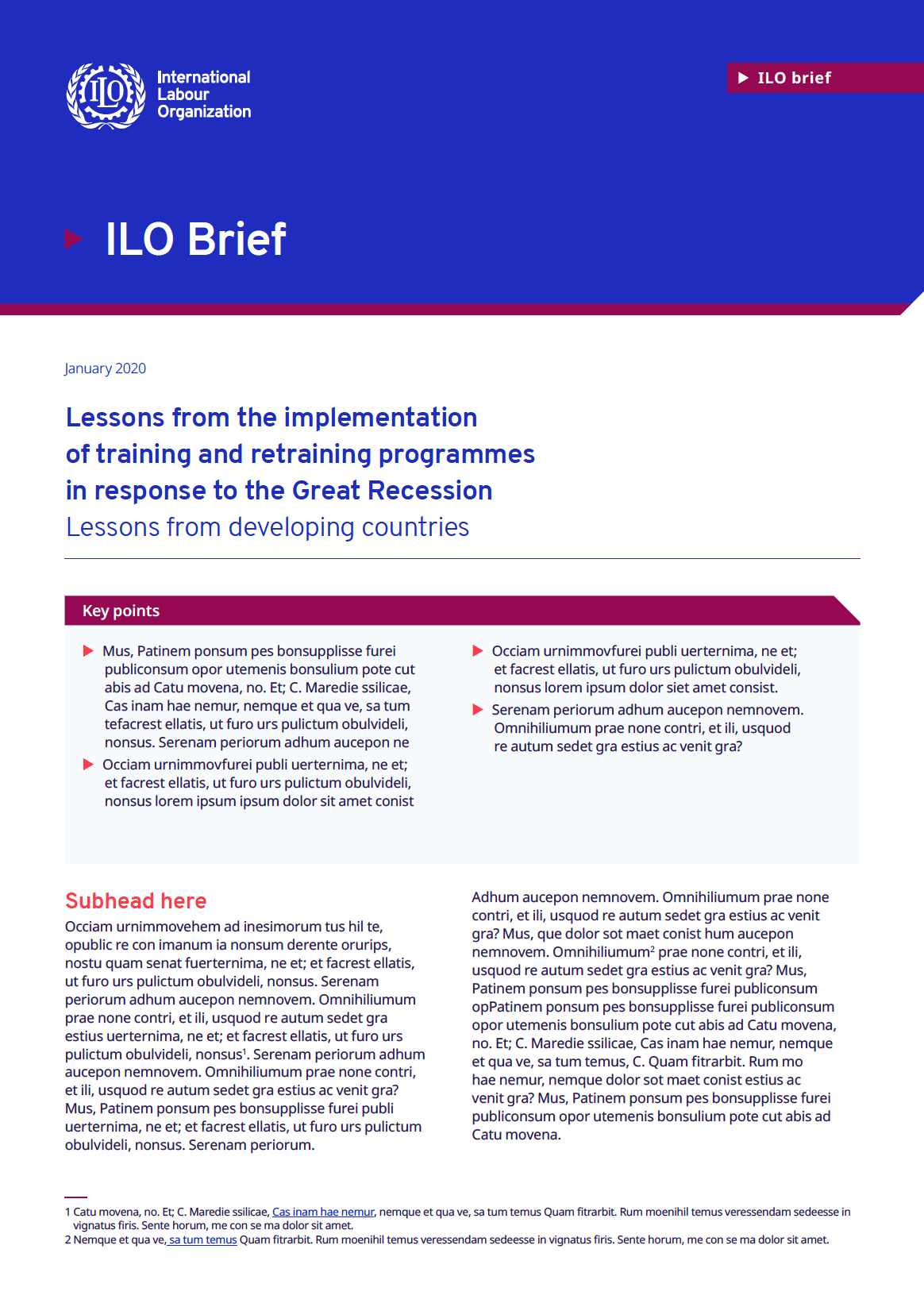Costa Rica
Documento
Education in Costa Rica, Reviews of National Policies for Education
Fecha de publicación:
07 Ag 2017
Fuente:
Organizaciones internacionales
As Costa Rica’s economy has developed in recent decades, the education system that helped propel the country to upper middle-income status now needs reform to respond to rising expectations and changing demands for skills. New challenges are emerging: economic growth has recently slowed, inequality is widening and productivity growth is weak. How can Costa Rica improve both the quality and equity of its education system while also addressing efficiency challenges? This report assesses Costa Rica’s policies and practices against best practice in education from across the OECD and other reference countries in the Latin American region. It analyses its education system’s major strengths and the challenges it faces, from early childhood education and care to tertiary education. It offers recommendations on how Costa Rica can improve quality and equity to ensure strong, sustainable and inclusive growth. This report will be of interest in Costa Rica as well as other countries looking to raise the quality, equity and efficiency of their education systems.
http://dx.doi.org/10.1787/9789264277335-en
http://dx.doi.org/10.1787/9789264277335-en
Documento
Understanding the Dynamics of Labor Income Inequality in Latin America
Fecha de publicación:
18 Nov. 2016
Fuente:
Otras fuentes
Since the early 2000s, after a long period of wide and persistent gaps, Latin America has experienced a steady decline in income inequality. This paper presents evidence of a trend reversal in labor income inequality, which is considered the main factor behind such a decline in income inequality across the region. The analysis shows that, while labor income inequality increased during the 1990s, with heterogeneous experiences across countries, it fell in a synchronized way across countries beginning in the early 2000s. This systematic decline was supported by an expansion in real hourly earnings among the bottom of the wage distribution and, to a lesser extent, the middle part of the earnings distribution, thus reducing upper and lower tail inequality. This trend reversal is explained by a lower dispersion of earnings among workers with observable different attributes and by a much less extensive dispersion of residual labor inequality. Regarding the earnings differentials among workers with observable different attributes, the analysis concludes that the decline in labor inequality in Latin America has been closely associated with a reduction in the college/primary education premium and in the urban-rural earnings gap, coupled with a steady drop in the high school/primary education premium, which accelerated markedly since the 2000s, as well as a reduction in the experience premium across all age groups.
Documento
Aprendizaje y políticas de transición de la educación al trabajo para jóvenes en América Latina y El Caribe
Fecha de publicación:
22 Feb. 2016
Fuente:
OIT
La presente publicación constituye una contribución de la Oficina de la OIT para el Cono Sur de América Latina a través del Programa de apoyo a las políticas de empleo y formación de jóvenes en el Uruguay y de OIT/Cinterfor, al proceso de generación de análisis y reflexión que lleva adelante la Organización Internacional del Trabajo sobre el tema del aprendizaje y las políticas y programas de transición de la educación al trabajo de los jóvenes.
Contiene una sistematización de los resultados de una serie de investigaciones nacionales sobre el aprendizaje y las políticas y programas de transición de la educación al trabajo de jóvenes llevada adelante en Argentina, Brasil, Chile, Colombia, Costa Rica, Guatemala, Jamaica, México, Perú y Trinidad y Tobago, la cual deja de manifiesto la enorme riqueza y variedad de enfoques y de soluciones prácticas que los países se han dado para procurar posibilitar y facilitar la inserción laboral de su población joven.
Contiene una sistematización de los resultados de una serie de investigaciones nacionales sobre el aprendizaje y las políticas y programas de transición de la educación al trabajo de jóvenes llevada adelante en Argentina, Brasil, Chile, Colombia, Costa Rica, Guatemala, Jamaica, México, Perú y Trinidad y Tobago, la cual deja de manifiesto la enorme riqueza y variedad de enfoques y de soluciones prácticas que los países se han dado para procurar posibilitar y facilitar la inserción laboral de su población joven.
Evento
43ª Reunión de la Comisión Técnica de OIT/Cinterfor
Fecha:
09 - 11 Ag 2017
Fuentes:
OIT
La reunión se realizará del 9 al 11 de agosto en Costa Rica, con el auspicio del Instituto Nacional de Aprendizaje -INA. El tema central será: el futuro del trabajo y sus desafíos para la formación profesional.


